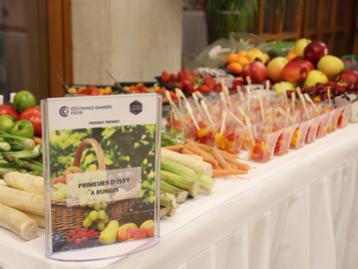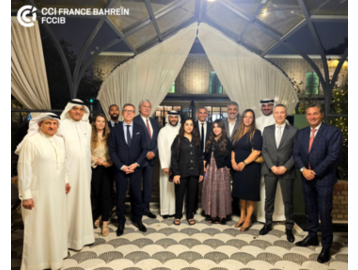Drive to attract private funding for $30bn projects highlighted
MANAMA: Bahrain’s drive to bring the private sector on board for a $30 billion pipeline of infrastructure projects has been highlighted in a new report by research and advisory firm Oxford Business Group (OBG).
‘The Report: Bahrain 2022’ says that the government is taking steps to provide a more accommodative regulatory and investment framework to persuade multinational companies to invest in the kingdom, offering as explanation the fact that financing of infrastructure development through public funds is no longer sustainable.
The report adds that while the country does not have a dedicated public-private-partnerships (PPPs) law, PPP frameworks have been successfully used on multiple occasions for the construction of water, wastewater and power facilities and affordable housing projects.
It says PPPs are to be implemented across the Strategic Projects Plan’s 22 big-ticket projects including the $3.5 billion King Hamad Causeway – a road and railway bridge connecting Bahrain and Saudi Arabia – and the kingdom’s fully electric, emissions-free 109-km metro, which is being offered as an integrated design, build, operate, maintain and transfer PPP on a 35-year contract, and a 183-sq-km offshore city of Fasht Al Jarim, which will contain residential, logistical and tourism facilities.
The Strategic Projects Plan provides $30bn for investment in infrastructure, with the sector set to benefit from improvements in ICT and transport links.
The OBG report also explores the potential impact of Bahrain’s new 2022-26 Industrial Sector Strategy, with a focus on how the kingdom can better generate downstream value-added to its natural resources and capitalise on the potential of the Fourth Industrial Revolution.
After weathering a series of global and regional challenges in recent years, Bahrain is emerging from the Covid-19 pandemic with strong growth, rising government revenue and a new plan for the future economy.
Projects
As energy and tourism earnings recover, the kingdom aims to generate sustainable long-term growth opportunities through new sector strategies and transformational infrastructure projects, the report adds.
With oil and gas prices fully recovered from the lows of the pandemic, the report also tracks the latest developments in Bahrain’s oil and gas industry, including ongoing efforts to commercialise a major shale discovery made in 2018. Efforts gaining pace to attract investment for the renewables segment are another focal point as the country aims to meet net-zero carbon emissions by 2060.
Commenting after the launch, OBG editor-in-chief Oliver Cornock said that high international oil prices and a robust project pipeline are helping Bahrain to rebound from the challenges of the pandemic.
“Bahrain’s economy grew by 2.2 per cent in 2021, buoyed by a recovery in energy and tourism income, with foreign direct investment also rising, by more than half, year-on-year, in the first three quarters of 2021,” he said. “We expect large-scale projects to continue boosting infrastructure and investment, putting the country on track for a period of sustained growth.”
OBG Middle East managing director Jana Treeck added that well-developed finance and industrial sectors had enabled Bahrain to lay firm foundations for the next phase of its growth plans.
“Bahrain benefits from having one of the most diverse economies in the Gulf, which is now supporting an ambitious programme to attract $30bn in infrastructure investment alongside efforts to balance the budget by 2024,” Ms Treeck said.
“Higher global oil prices should also help drive economic expansion and recovery, paving the way for Bahrain to achieve its Vision 2030 targets.”
The Report: Bahrain 2022 has been produced in partnership with the National Bank of Bahrain, the Bahrain Bourse and KPMG Bahrain.
A team of OBG analysts conducted field research for more than six months to produce the report.
Source: https://www.gdnonline.com/Details/1142554


